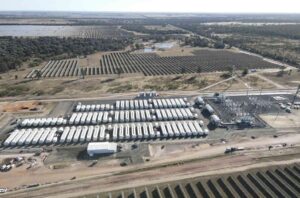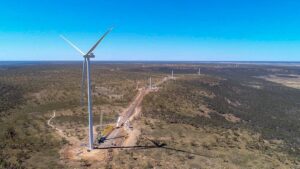The Australian Energy Market Operator has highlighted one of the biggest problems in Australia’s electricity grid – namely that some legacy coal and gas generators have no performance standards, and it may not even know what their control settings are.
The admission comes in AEMO’s submission to the Finkel Review, in which it also pleads for much faster decision making on critical rule changes – such as the 5-minute rule – and for such decisions to be “forward looking” and “proactive,” rather than “reactive”.

Its frustrations with the glacial pace of rule-changes – the province of the Australian Energy Market Commission – have been reflected in the broader market and at ministerial level.
AEMO notes that some rule changes can take years to be finalised, and even then may not result in “forward looking” decisions, or take into account new technology developments.
It wants to be able to do some of that rule-making itself, in recognition of the importance of its role in dealing with the actuality of technology changes and grid challenges, and of keeping the lights on.
“The current arrangement is therefore not sufficiently responsive or forward-looking to meet the needs of the paradigm shifts the NEM and its participants need to embrace,” AEMO writes.
It says processes and settings within a broad policy space could be managed by agencies such as itself and the Australian Energy regulator.
“One example is the critical need to continually adapt the technical standards applied to generators seeking connection to the grid. These standards are currently embedded in the Rules and have not been updated in some time.”
It made special mention of the 5-minute rule proposal, which proposes to change the time period for settlement on the wholesale electricity market from 30 minutes to 5 minutes to stop market gaming.
The proposal has come from zinc refiner Sun Metals, which says the obvious distortions in the market often force the company to slow down production so it doesn’t have to pay inflated prices. It has since commissioned a 116MW solar plant to reduce its dependence on expensive coal power.
“It is well known to distort bidding behaviour and create unintended risks, issues which may become more severe over time given the technological changes underway,” AEMO wrote in its submission.
AEMO says it wants a quick resolution to this rule, but consideration has been repeatedly delayed by the AEMC, in the face of intense pressure from the fossil fuel generators, those accused of that distorting bidding behaviour, who want to protect their hold on the market and not allow in new competitors such as battery storage.
On the issue of standards, the AEMO, while welcoming new technologies, which it says offer a multiple of options to deal with upcoming grid issues in the energy transition, is concerned about the status of “legacy” coal and gas generators.
It says those connected before 2007 – which is nearly all of them –“do not have standards to which they have to adhere in respect to some aspects of their performance.”
On top of that, AEMO admits to having only “limited knowledge” of the settings for these generators. So much so, that is has no idea how they might perform in system faults, because data “can often only be obtained through testing or by observing extreme disturbances on the power system.”
It went on: “This means that as the power system evolves, AEMO will face challenges in determining how existing technologies will behave under the changing system dynamics.”
This is a critical element and one that has been raised by other energy engineering specialists.
Earlier this week we wrote of a new paper that questions the settings on major generators, and their impact on grid stability, The authors are concerned that the settings have been relaxed to the point where they are useless, and could cause immense damage to the generators themselves, and to the system as a whole.
AEMO now says the lack of knowledge about the settings on legacy plants could cause it to act more conservatively in running the grid, or impose added costs to ensure they are protected.
But it questions whether others should pay these costs, or the generator owners should cough up to bring their generators up to date.
“The NEM has generally maintained a principle of grandfathering, i.e. if the equipment was approved for connection at some historical time, then it should not be obliged to meet standards that might apply now,” it writes.
“This approach has obvious benefits in lowering investor risk, however its retention presents challenges during the dramatic technical changes occurring in the power system currently, meaning that either:
- The network must be operated more conservatively in order to protect sensitive legacy equipment.
- Investments in expensive new regulated network equipment must occur, which may be more costly than retrofitting or retiring the legacy equipment.
- More burdensome obligations must be placed upon new entrants in order to protect the legacy equipment.”
It is yet another highlight that the principal issues surrounding Australia’s electricity network are not new technologies, which can be combined with incredibly fast response and smart software, but in the clunky old generators that are falling out of date.






